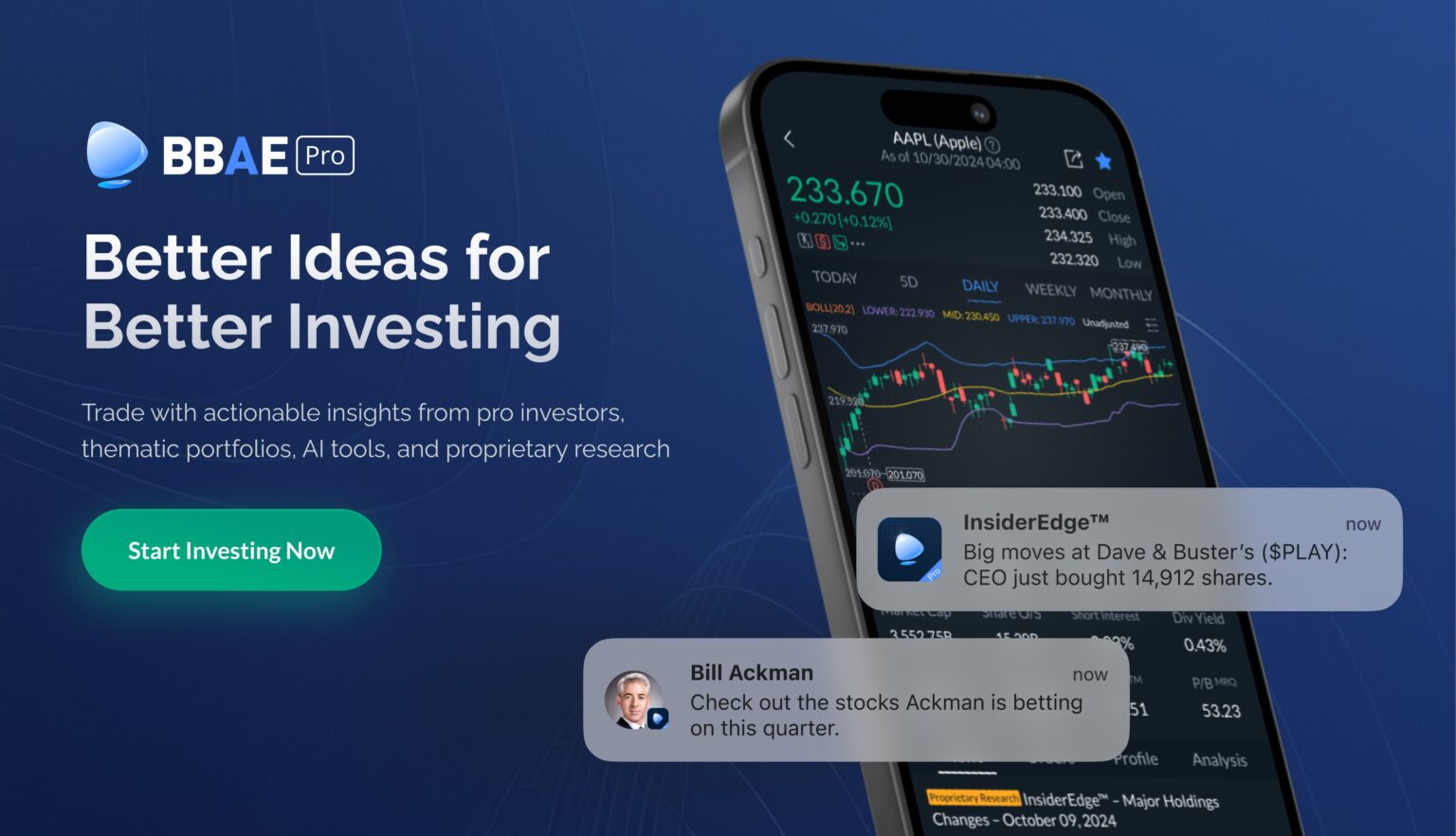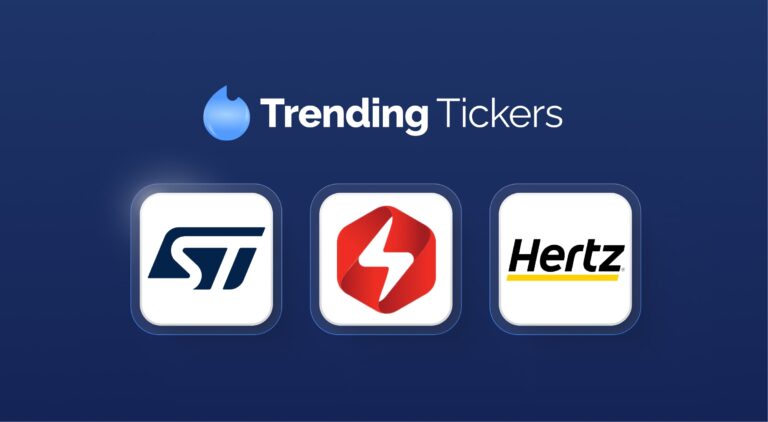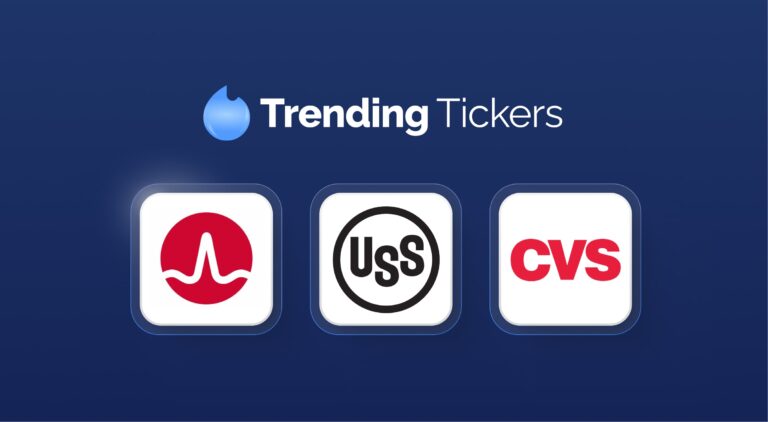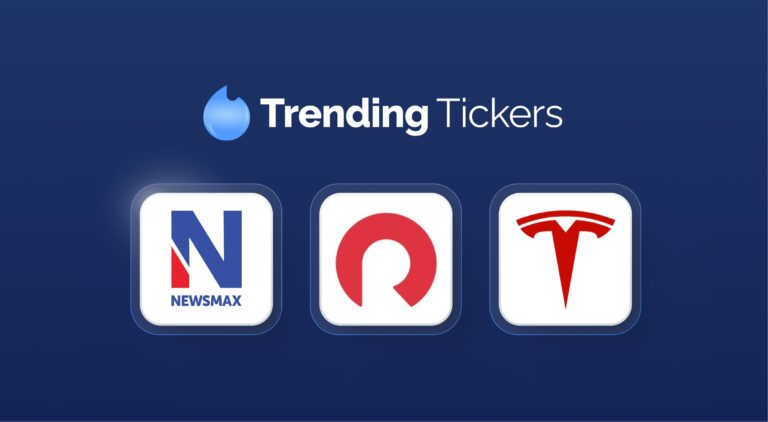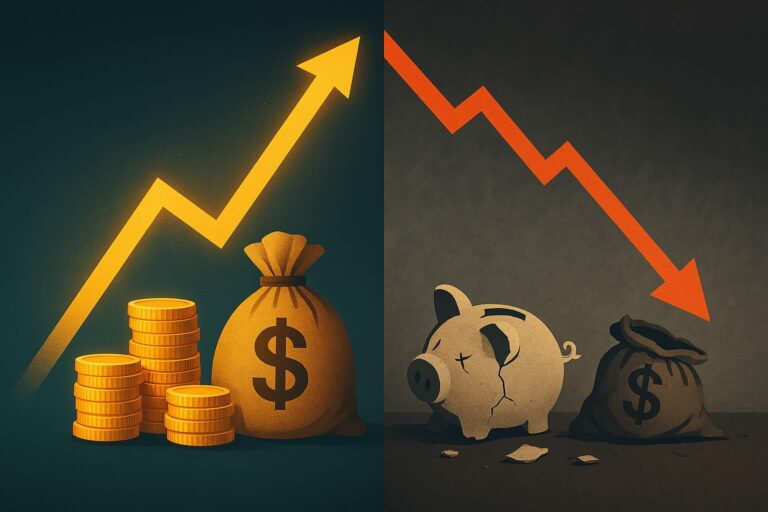Warren Buffett / Berkshire Hathaway – Portfolio Update – Q3 2024
Warren Buffett is known as the world’s greatest investor, or at least the world’s greatest value investor, having delivered roughly 3,800,000% returns since inception to Berkshire Hathaway (NYSE: $BRK.B) investors – and, ironically, Buffett’s best returns came pre-Berkshire, in the 1950s, when he was running the Buffett Partnership.
Institutional investment entities managing more than $100 million are required to file a form 13F with the SEC within 45 days of the end of every quarter, detailing their public holdings (at least as of the end of the quarter). For a quick-trading quantitative manager, these holdings may change substantially within 45 days – meaning the 13F contains little current information. But for a buy-and-hold, slow-to-move entity like Berkshire Hathway, it’s likely an accurate look.
Buffett sees no (or at least few) bargains
“Buffett” is probably a misnomer: Lieutenants Todd Combs and Ted Weschler – both phenomenal investors in their own right – mostly manage Berkshire’s public equities, though Buffett does have some involvement.
Berkshire’s biggest move was to cash: Berkshire Hathway’s cash was up 87% to $305 billion. Ironically, its public equity holdings were just $297 billion, so Berkshire has more cash than (public) stock. (If you’re new to Berkshire, its holdings are split into a cluster of “passive” public equity holdings like Apple (Nasdaq: $AAPL) and Coca-Cola (NYSE: $KO) and mostly-wholly-owned private businesses like Justin boots and Jazwares, maker of Squishmallows.
Much of that new cash came from selling 25% of Berkshire’s Apple holding – still Berkshire’s largest position, and the investment that’s made the most money for Berkshire overall. Apple is just over 26% of Berkshire’s public equity portfolio.
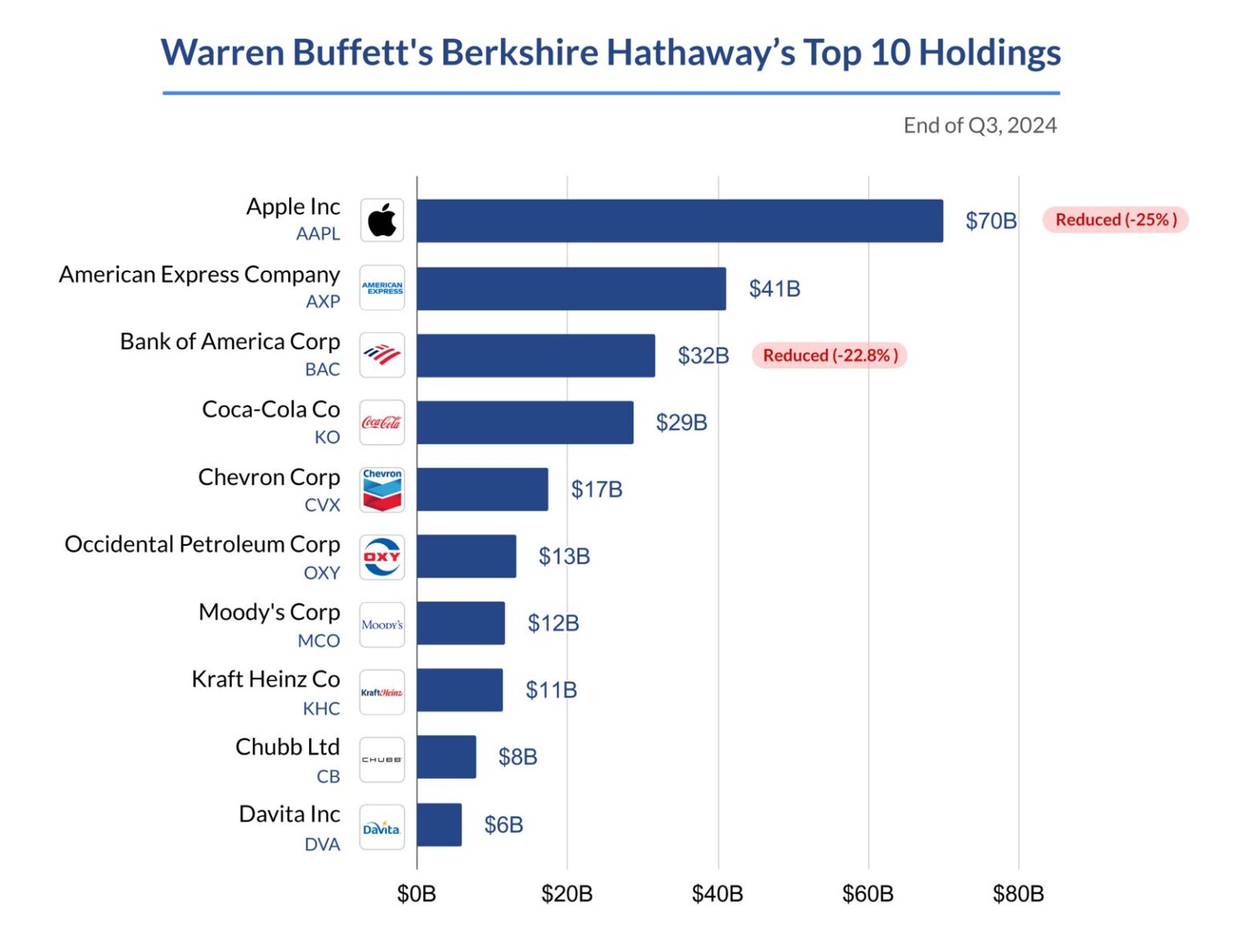
Why is Berkshire selling part of its Apple stake? Apple’s market cap is $3.4 trillion, which would seem to imply little growing room, and whereas Berkshire accumulated its Apple position at (mostly) between a 10 and 20 P/E, Apple trades at a 37 P/E now – so presumably, it’s just looking really expensive. (Note that despite the “Buffett Sells Apple” headlines, the complete picture is that Berkshire is choosing to retain most of its Apple stock.)
Berkshire reduced its Bank of America (NYSE: $BAC) stash by nearly 23% as well. I’d guess that Berkshire’s reasons for selling are mostly economic, but this sale brings Berkshire’s holdings below 10% of Bank of America’s total market cap, which de-triggers Berkshire’s enhanced requirement to report trades within two days of making them. (Berkshire’s holdings had dipped below 10% after prior sales, but Bank of America’s buybacks pushed them back above 10%.)
Berkshire didn’t add many positions by number (the graphic below is not valuation-weighted; it just shows the raw number of new vs. existing positions).
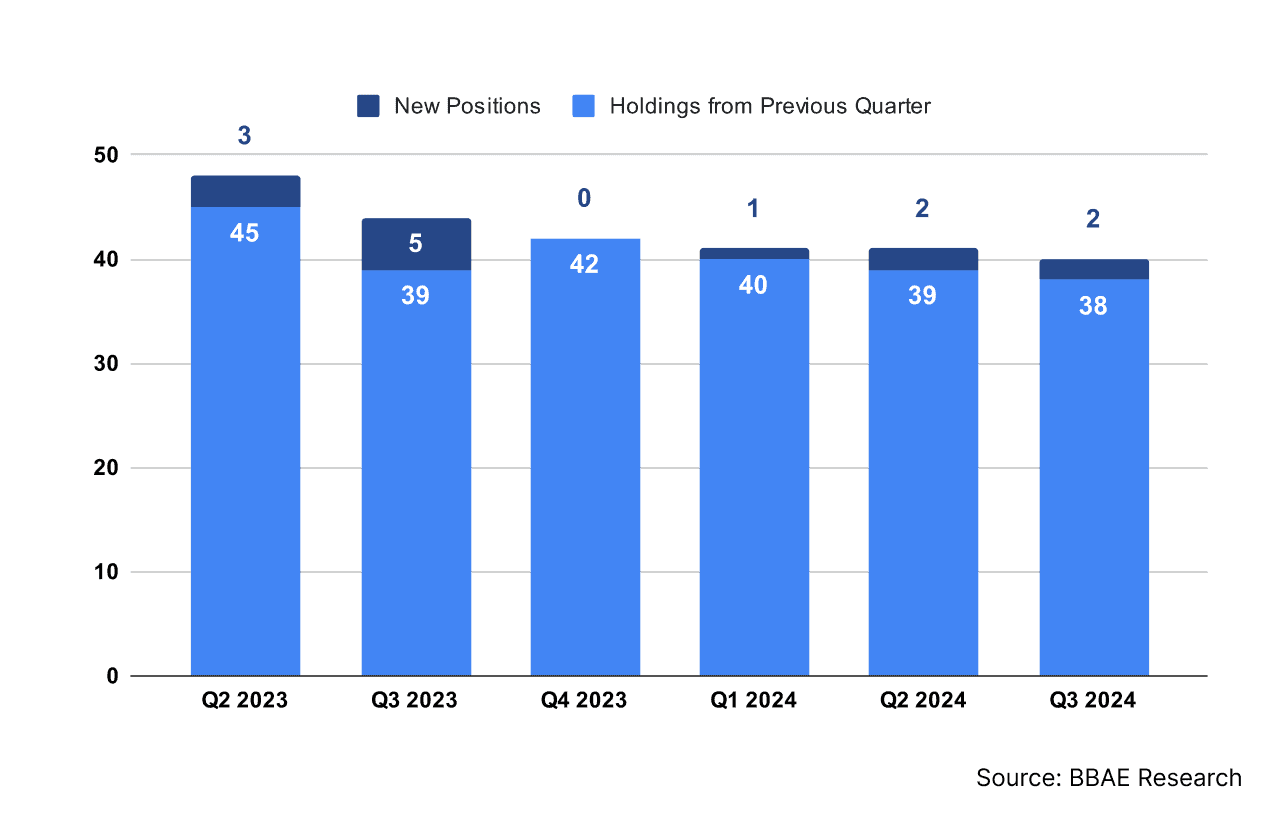
But Berkshire (likely Todd and Ted) did initiate a position in Domino’s Pizza (NYSE: $DPZ) and one in Pool Corp (Nasdaq: POOL) a wholesale pool equipment business.
Berkshire also cleared nearly out – by selling 96.5% – of its Ulta Beauty (Nasdaq: ULTA) position, which likely surprised Ulta’s cult following.
All in all, this was a fairly inactive quarter whose main event was the increased cash stockpile – a stockpile that likely grew not because there is a target in mind, but because valuations just seem high.
This is typical Buffett, though: If there’s no need to act, don’t. As Matt Franz of Eagle Point Capital says:
“Buffett only acts at the extremes, and then acts decisively.”
This article is for informational purposes only and is neither investment advice nor a solicitation to buy or sell securities. All investment involves inherent risks, including the total loss of principal, and past performance is not a guarantee of future results. Always conduct thorough research or consult with a financial expert before making any investment decisions. James owns shares of Berkshire Hathaway, Apple, and Bank of America. BBAE has no position in any investment mentioned.
